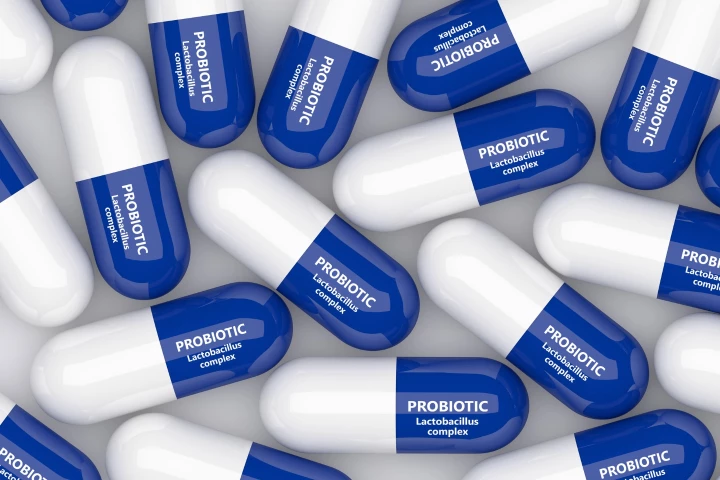Probiotic
-
Can anxiety disorders be treated by simply altering a person’s microbiome? And if so, what is the best way to change one’s gut bacteria – simply altering a daily diet or consuming probiotics?
-
Probiotics have long been thought a force for good in the body, but there may be a gray area between good and bad bacteria. A mouse study conducted at Washington University in St. Louis has now found that probiotics can evolve in the gut, becoming less effective or even turning against the host.
-
At the forefront of gut microbiome science are researchers looking to specifically genetically engineer probiotics to act as living medicines. New data has described the results of a human trial testing the safety of a strain of E. coli engineered to mop up excess ammonia in a person’s intestine.
-
Two new placebo-controlled studies have been published concluding probiotic supplements do not confer any beneficial effects in easing symptoms of gastroenteritis in children. The trials found children’s symptoms and recovery times were nearly identical whether they took probiotics or a placebo.
-
Bacteria continue to evolve resistance to our best drugs, but probiotics help keep bad bugs at bay. Now, MIT researchers have found a way to combine probiotics and antibiotic drugs into an uneasy alliance that seems to work better than either treatment alone.
-
When soy milk and tofu are made from soybeans, a pulp known as okara is left over. Due to its fishy smell, bland flavor and gritty texture, it's typically thrown away. Now, however, scientists have developed a process of converting it into a healthy and (supposedly) tasty probiotic drink.
-
New research, from Augusta University, reports a connection between symptoms associated with brain fogginess, including poor short-term memory and difficulty concentrating, and a particular bacterial overgrowth in the small intestine resulting from probiotic consumption.
-
A team has successfully developed a combination of herbal supplements and probiotics that can prolong the longevity of fruit flies by 60 percent. The technique is one of the first to successfully show a treatment that modulates the gut microbiome can result in potent lifespan-extending effects.
-
New research from King’s College London has set out to produce a comprehensive database of the various compounds produced by the enormous array of bacteria that resides in our gut. These compounds, called postbiotics, could potentially then be synthesized and used as medications.
-
A meta-analysis incorporating over 400 different studies has examined the effect of diet during pregnancy on a baby’s risk of developing allergies or eczema. The study concluded that a mother consuming fish oils or probiotics while pregnant can have positive effects on her baby’s well-being.
-
A new four-year follow-up study on the efficacy of a probiotic-based peanut allergy cure has revealed the majority of the original successful participants still displaying tolerance to peanuts, paving the way for the final phase of trials to bring the treatment to the public.
-
When it comes to foods that are a good source of probiotics, we often think of things like yogurt and dark chocolate. Beer, though? Not so much. That isn't the case with a new beer, however, created at the National University of Singapore.
Load More











